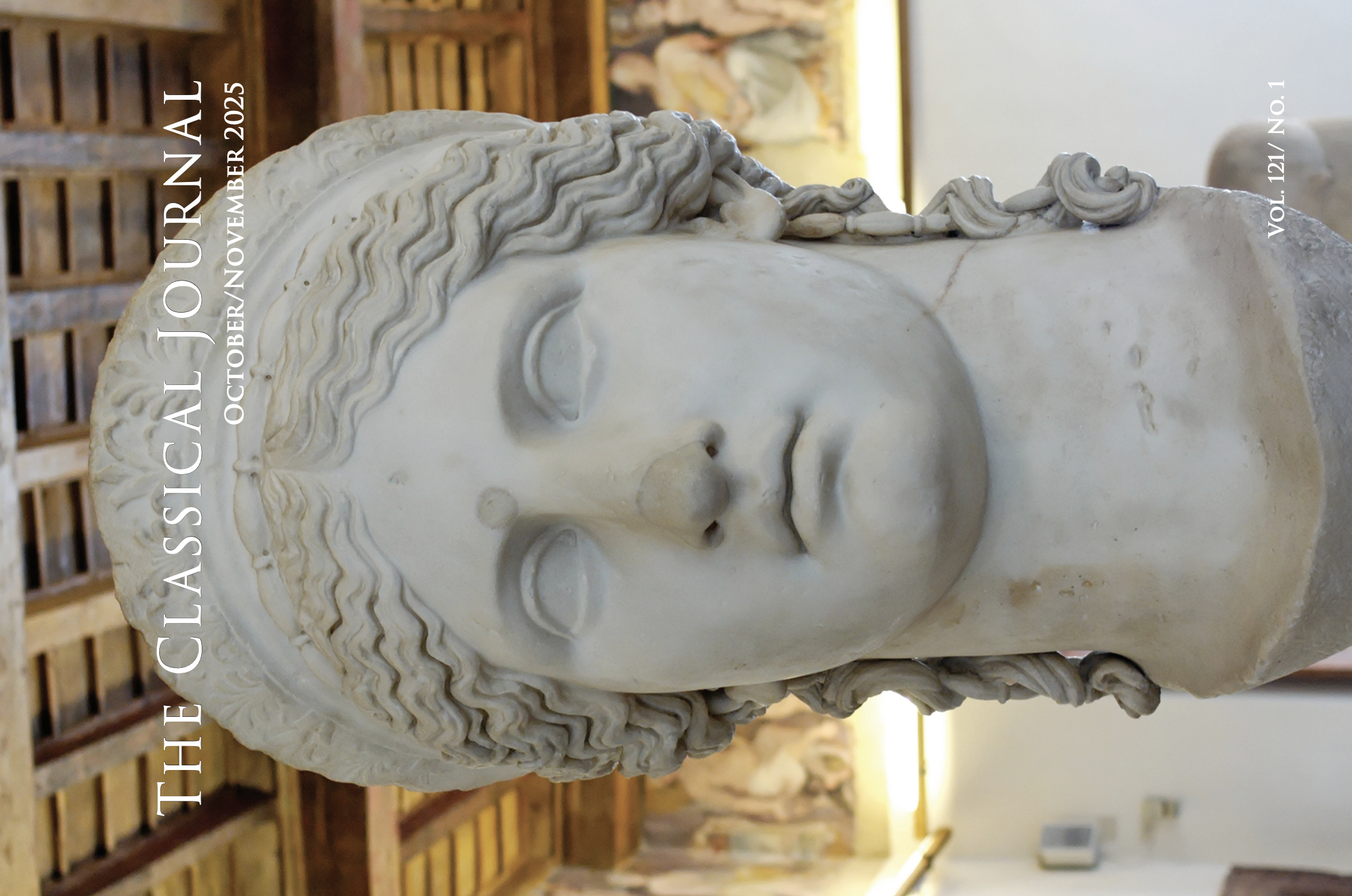The following articles are contained in CJ
116.3
Abstracts of Articles
Calendric Aspects of Myths and Cults Involving Apollo’s Visit to Hyperborea
A study of the myths and cultic realities involving Apollo’s visit to Hyperborea demonstrates that many of them incorporate certain calendric information of different degrees of precision. Apollo’s movements set within a Hyperborean framework appear to havemainly been of a seasonal character and in this respect ultimately conditioned by the annual motion of the sun. However, this does not necessitate an outright assimilation of Apollo to the physical sun; the correspondences between the deity’s voyages to the far north and the movements of the celestial body were rather derived from the explicit seasonality of the rites at Delphi, Delos and elsewhere.
Inheriting War in Thucydides
This article argues that Thucydides represents the story of the Eurypontid Spartan kings, Archidamus and Agis, as a coherent, meaningful narrative spanning his text. Early on, Archidamus worries that his generation might leave war to their children as a kind of inheritance. His son Agis then does inherit the war, more literally than any other figure. The consequences of this malign bequest become clear as Agis comes to violate the traditional value system represented by his father. Formal naming of both men throughout their stories encourages the reader to view their appearances not as a series of isolated events but as a single narrative depicting the corruption of their family.
Invisibility, Belief, and Narrative
There are a number of invisibility rituals in the Graeco-Egyptian papyri whose presence in the corpus suggests that achieving invisibility was of interest to some in late Roman Egypt. But did anyone actually believe that such acts were possible?After highlighting the observations of various ancient (and modern) authors on this question, this essay turns to recent insights from Sarah Iles Johnston on the relationship of narrative technique and belief regarding Greek myth and considers how such techniques might have helped to affirm the validity of certain invisibility tales across time and space in the ancient Mediterranean world.
Exemplary Negotiations of Patientia
This paper examines the tensions that were inherent within the Roman moral concept, patientia, focusing on the versions of exemplary patientia provided by Cicero, Livy and Valerius Maximus. These authors use exemplarity to navigate the contradictory possibilities of patientia by emphasizing the agency and autonomy of their exempla. This allows authors to distinguish positive versions of the quality from negative versions, particularly those associated with women and enslaved individuals. This paper also considers how exemplary accounts of patientia facilitated a discussion about ideal morality and behaviour within shifting political circumstances and explores the roll of exemplarity in negotiating ideologies in Rome


